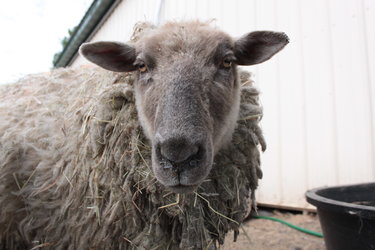State announces $5M in meat-processing grants
ALBANY COUNTY — Local meat processors have a shot at obtaining a portion of $5 million announced by the state this week to be dedicated toward an effort to establish or enhance meat-processing operations in New York State.
The deadline for applications, which are to be submitted through the Hudson Valley AgriBusiness Development Corporation, is June 21 this year.
Up to $250,000 will be awarded on a reimbursement basis to applicants who “have a detailed project plan and project proposal that outlines the expansion/retention or establishment of a [United States Department of Agriculture] meat processing facility in New York State,” according to the HVADC website.
Proposals must also include a detailed budget and timeline, the site states. Matching funds will be required at a value of 10 percent for grants under $100,000, and 20 percent for grants over that amount.
Money “may be used for acquisition of machinery and/or equipment, installation or renovation/leasehold improvements of an existing building, or the acquisition of fixtures,” the site says.
The purpose of the funding is to bolster New York State agriculture after the COVID-19 pandemic brought food resiliency front and center over the past few years, according to a press release from the state’s Department of Agriculture and Markets.
Meat processing in particular was heavily affected by the pandemic, as The Enterprise reported last year, because the majority of the market is controlled by just a small number of very large companies like Tyson, Cargill, and Hormel.
When the coronavirus ran through those companies’ workforces, it severely limited the ability of local farmers to get their animals processed.
Knox Agricultural Committee Chairman Gary Kleppel told the town board last year, “In our town, and in our state, we’re experiencing a meat crisis … And one of the biggest problems is that you can’t get an appointment at a processing plant. We are short processing plants. And there’s even evidence that we’ve collected that, when the plants in the midwest, which were processing 200,000 animals a week, closed down, a lot of those animals ended up in the Northeast.”
At least one farm in the rural town had closed down in part because of the difficulties processing meat efficiently, he said.
There are several hundred meat-processing facilities in New York state, but more than half of them are custom exempt, according to Cornell Cooperative Extension, meaning that they can only sell meat to order, rather than process it and put it out for sale, the way federally inspected facilities can.
The state money may help with that.
In a study, Cornell found that, while only 20.3 percent of custom-exempt processing facilities would be interested in transitioning to an operation sanctioned by the USDA without monetary assistance, more than 30 percent would be interested if they had assistance. An additional 8 percent that had said they were uninterested without funding would “maybe” be interested, with funding.



